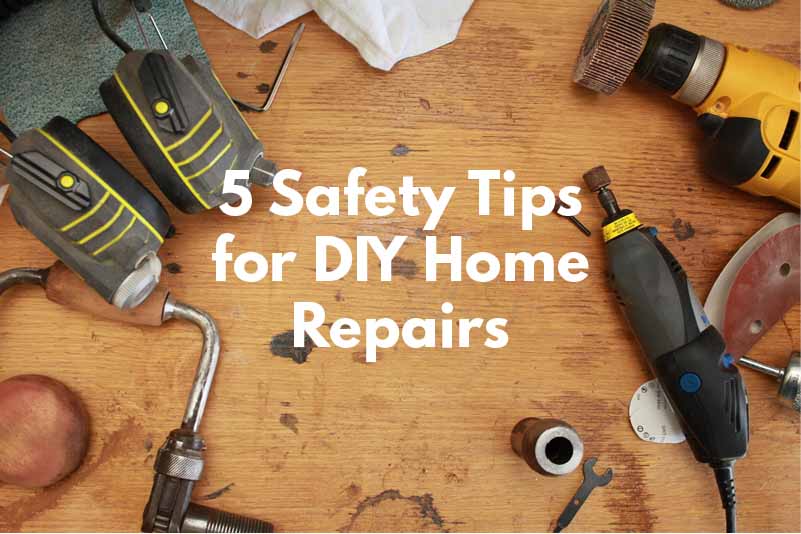We’ve all had something break in our house. Most of us have also thought “I can fix that.” Sometimes we are right, and other times we are definitely not.
As a standard rule, you shouldn’t attempt to repair anything you don’t feel comfortable doing. This goes especially for electrical or gas repairs. Leave the complicated stuff to a professional.
If you do gear up to make simple repairs, here are some safety tips to keep you and your home safe.
1. Research
Always know what you are up against. Even if you only have a slight concern, make sure you read up about the repair you are attempting.
This could involve reading the owner’s manual or looking at some credible websites for information. The website of the product manufacturer is a great place to check out. There are also plenty of YouTube videos that can walk you through some types of repairs as well. If the repair seems complicated, call a professional.
2. Proper Safety Equipment
It’s amazing how many people don’t use basic safety equipment. If you are performing any task and there is recommended safety equipment, it is recommended for a reason.
Safety equipment around the house could include gloves, goggles, masks, etc. Using safety equipment will help you in the event of an accident. No one thinks you are going to unintentionally stick something in your eye, but a broken or chipped object could do some damage.
3. Proper Tools
Sometimes you may start a repair and realize you don’t have a required tool that you thought you had. Your desire to get the project done results in you using the wrong tool in a manner in which it was not designed.
This usually isn’t the best practice. You should use the correct tool for the purpose it was created. This could cause an issue with the item being repaired, damage to your tool, or an injury to yourself.
4. Clear Workspace
The last thing you want when doing a repair is distractions or a mess. It is important to make sure that you have a clear workspace that will allow you to avoid any potential outside issues.
Make sure your family knows not to walk through the area you are working in. If you have a pet, make sure your area is blocked off. Clean up any parts or scraps that are lying around. Just try and maintain a clear and clean workspace.
5. Don’t Push It
If you are working and something starts going wrong it’s best to stop, as long as it is safe to do so. Remember that you aren’t a professional, so if something exceeds your ability it will be better, in the long run, to just stop.
Stopping can help avoid damage to the item being repaired. Continuing to try and make things better after it is clear you can’t on your own will lead to bad things. The bill for having someone else do a repair is so much better than injuring yourself or the item.
Bonus Tip: Call a Professional
If you really don’t know what you’re doing or are worried about what the repair entails, call someone who is trained in the area.
Our technicians at Modern can help you with the following home repairs:
- Central A/C
- Furnace
- Plumbing Issues
- And more!
DIY repairs can save you money and time if it’s a simple fix. But make sure you have the proper equipment for safety, or ask a professional to come check the issue out. By practicing good safety you can get the repairs done and not have anything to worry about.



